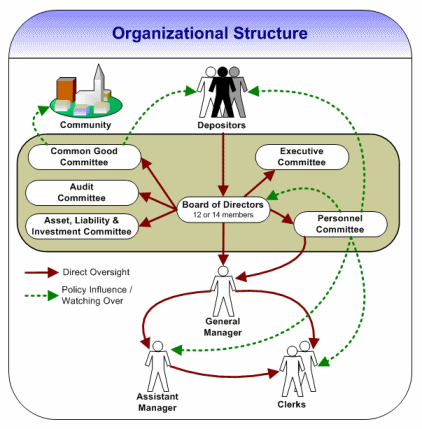Common Good Finance
the revoLution with a bank
Common Good Democracy™ - The Bank's Board of Directors
Common Good Bank depositors will control, within each community, how the bank's profits and grants of created money are distributed, what the investment priorities will be (in broad terms), and in some cases whether to invest in a particular industry or company. The bank's board of directors will be responsible for balancing those investment priorities against the bank's policies on prudent investment and compliance with state and federal regulations. It is essential that the directors be chosen in a way that guarantees diverse business expertise while faithfully representing the depositors, remaining true to the bank's mission to advance the common good of all. Each Regional Division of the bank (probably at least one per state, province, or country) will have its own board of directors and will operate almost entirely independently. Each Community Division will have its own Division Advisers and will also operate independently, subject to oversight by a Regional Division. Division Advisers will be responsible for pre-screening loan applications and for wording the questions and options that depositors vote on. The bank's board of directors will be composed of twelve or fourteen directors with diverse responsibilities, who will work together to ensure the financial and moral health of the bank. This board will maintain the required balance, combining the advantages of for-profit and nonprofit business in two ways:
Nomination ProcedureDirectors and Division Advisers do not run for office. They are nominated automatically by depositors' choices of ongoing proxies, as described in the section on Representatives. The N+3 most trusted willing representatives -- that is, the representatives who have recently voted on behalf of the most depositors and who have agreed to serve -- will appear on the ballot for N seats on the board. Depositors will choose from among them by multiple-choice vote. QualificationsDirectors and Division Advisors will serve staggered 3-year terms and will be responsible for training subsequent directors. All directors must have significant business and/or financial experience, creativity, common sense, a record of service to the community and proven ability to handle responsibility, working effectively both independently and cooperatively. Directors will be paid an hourly rate that falls between the 50th and 75th percentiles of hourly rates in the Bank's service area (typically between $20 and $25 an hour). Committees
| ||
